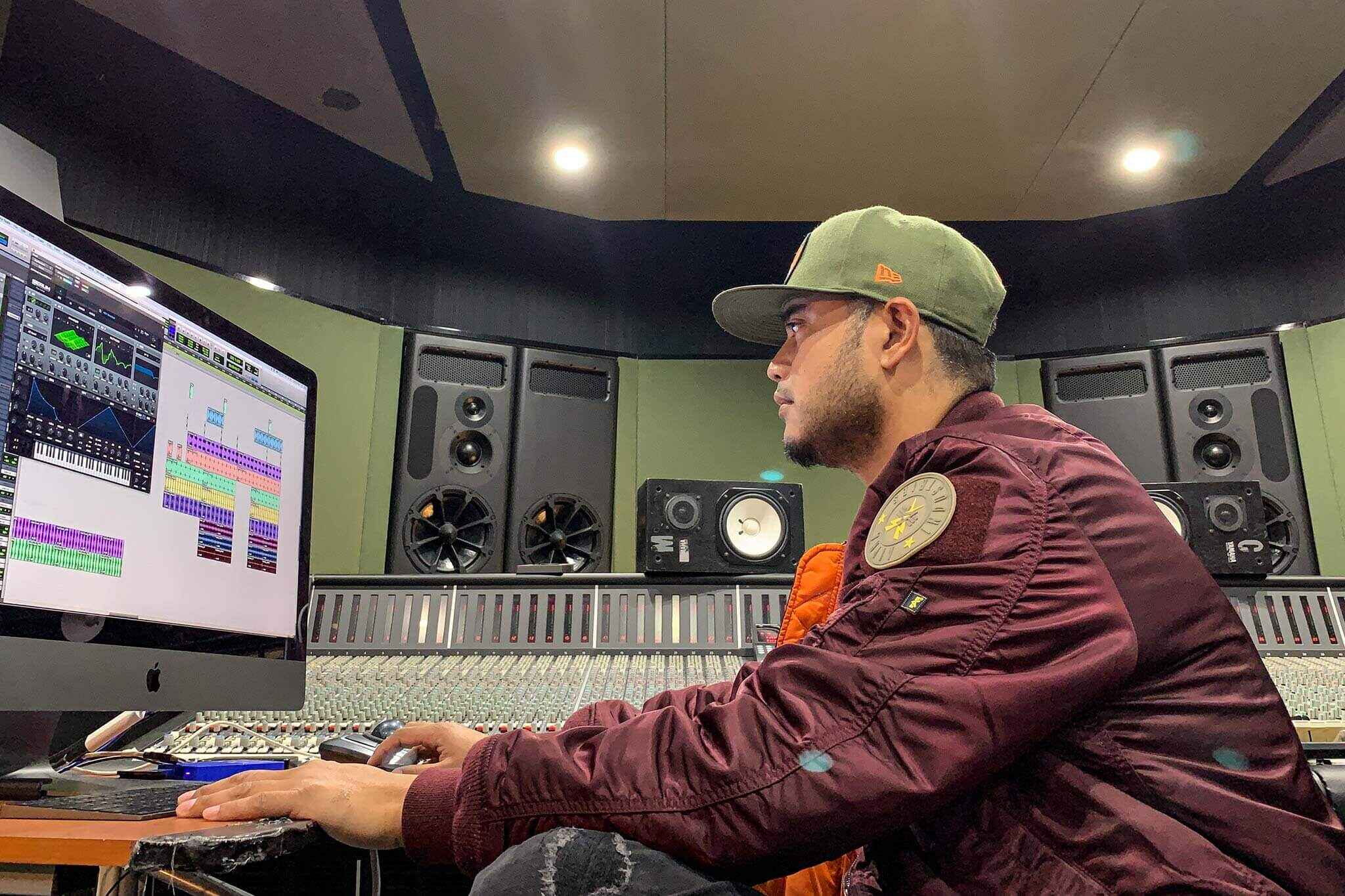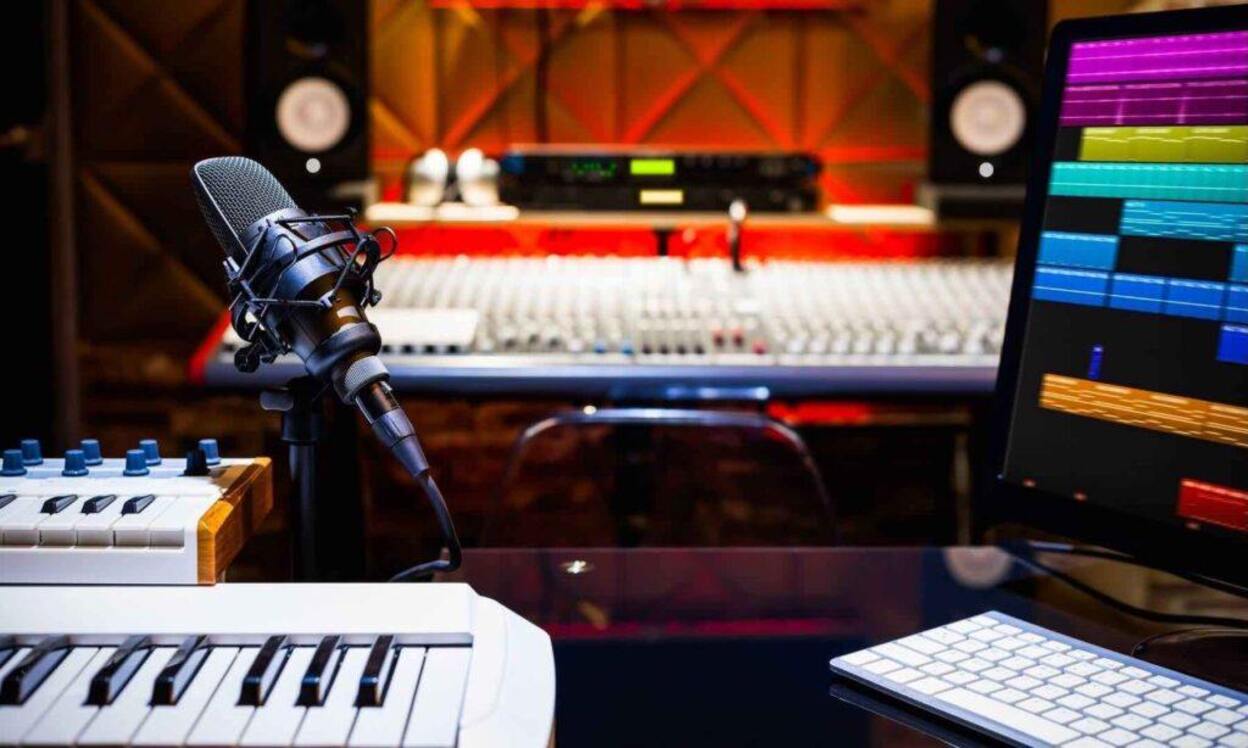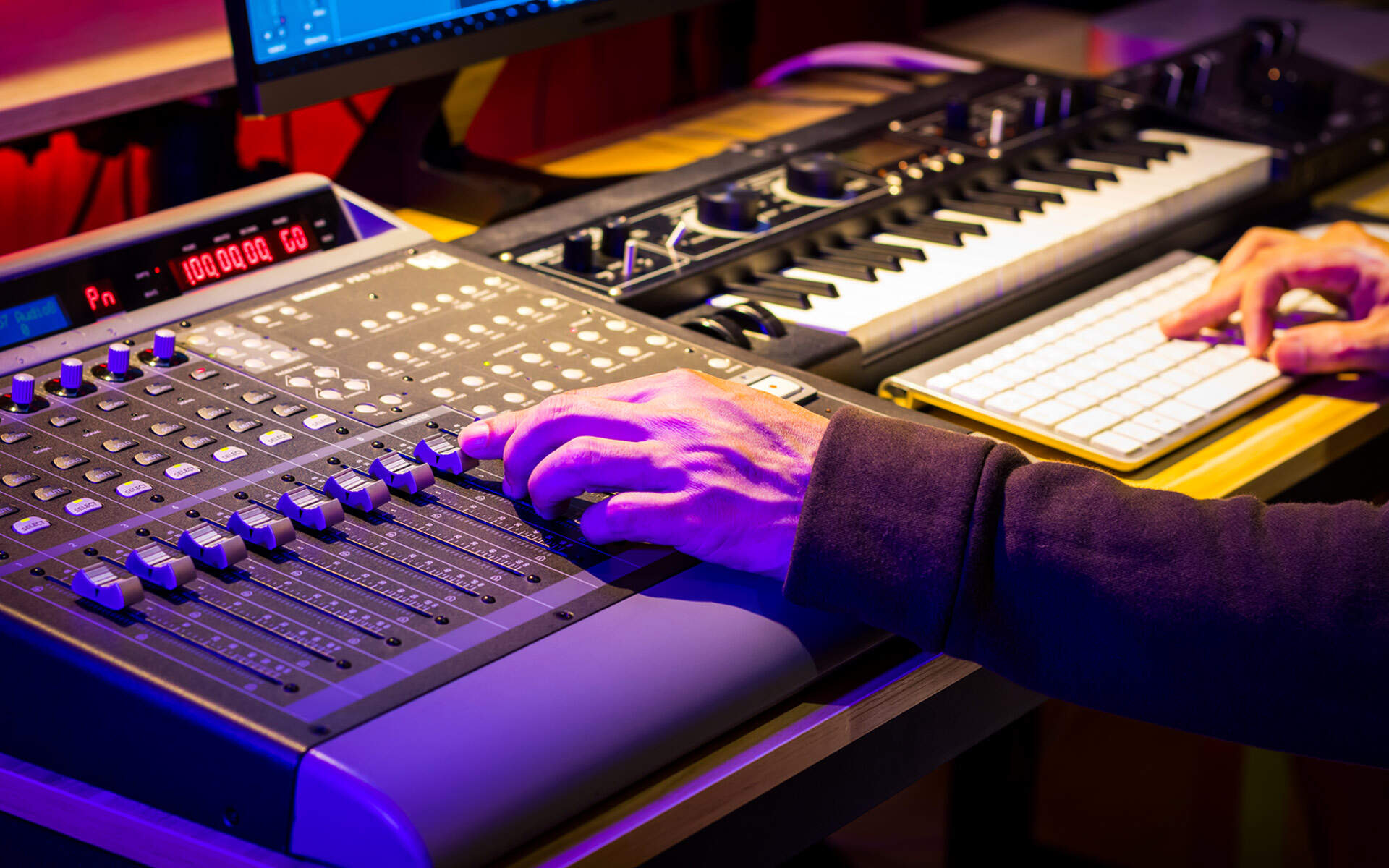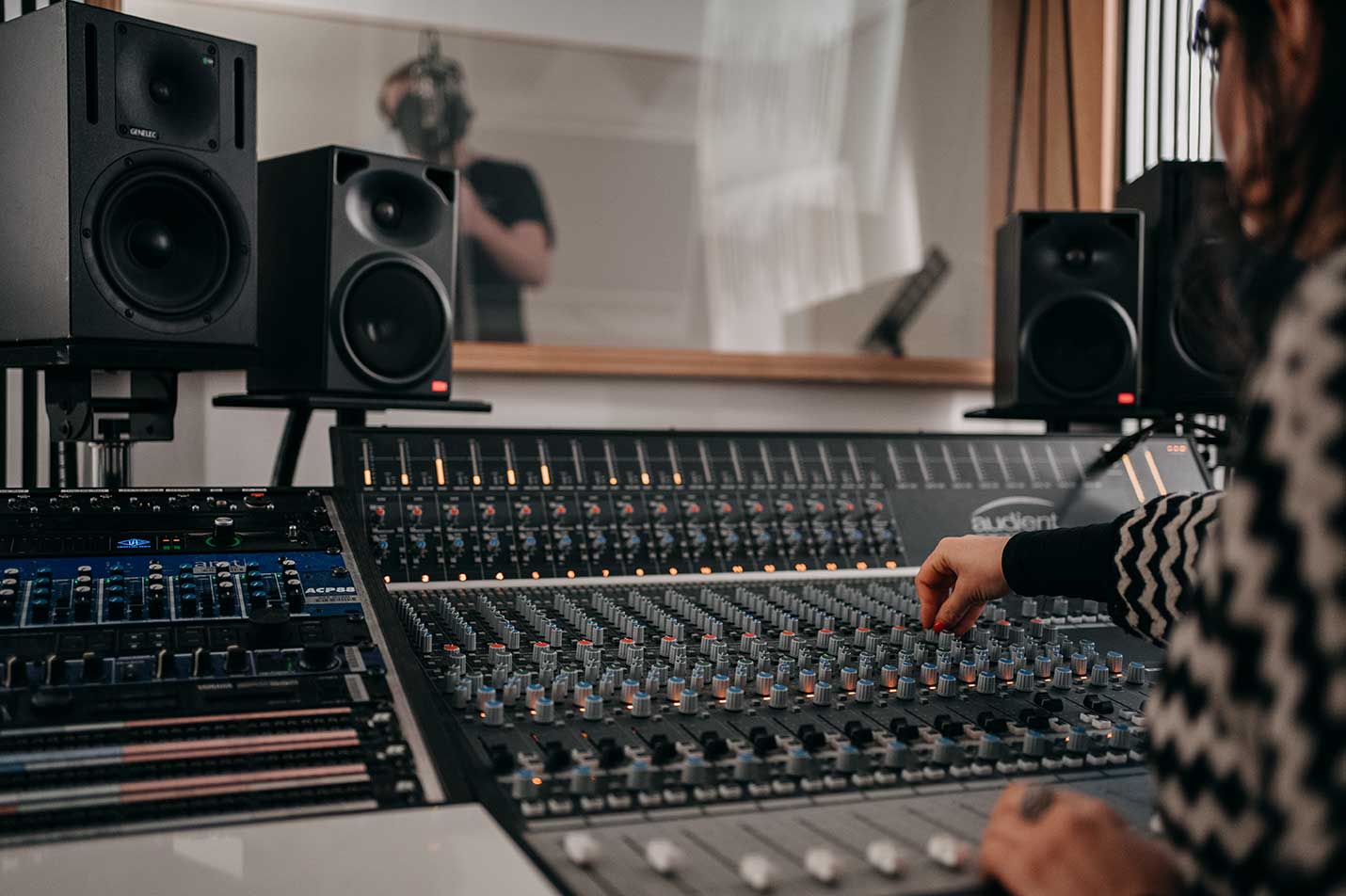Home>Production & Technology>Producer>How To Be A Professional Music Video Producer
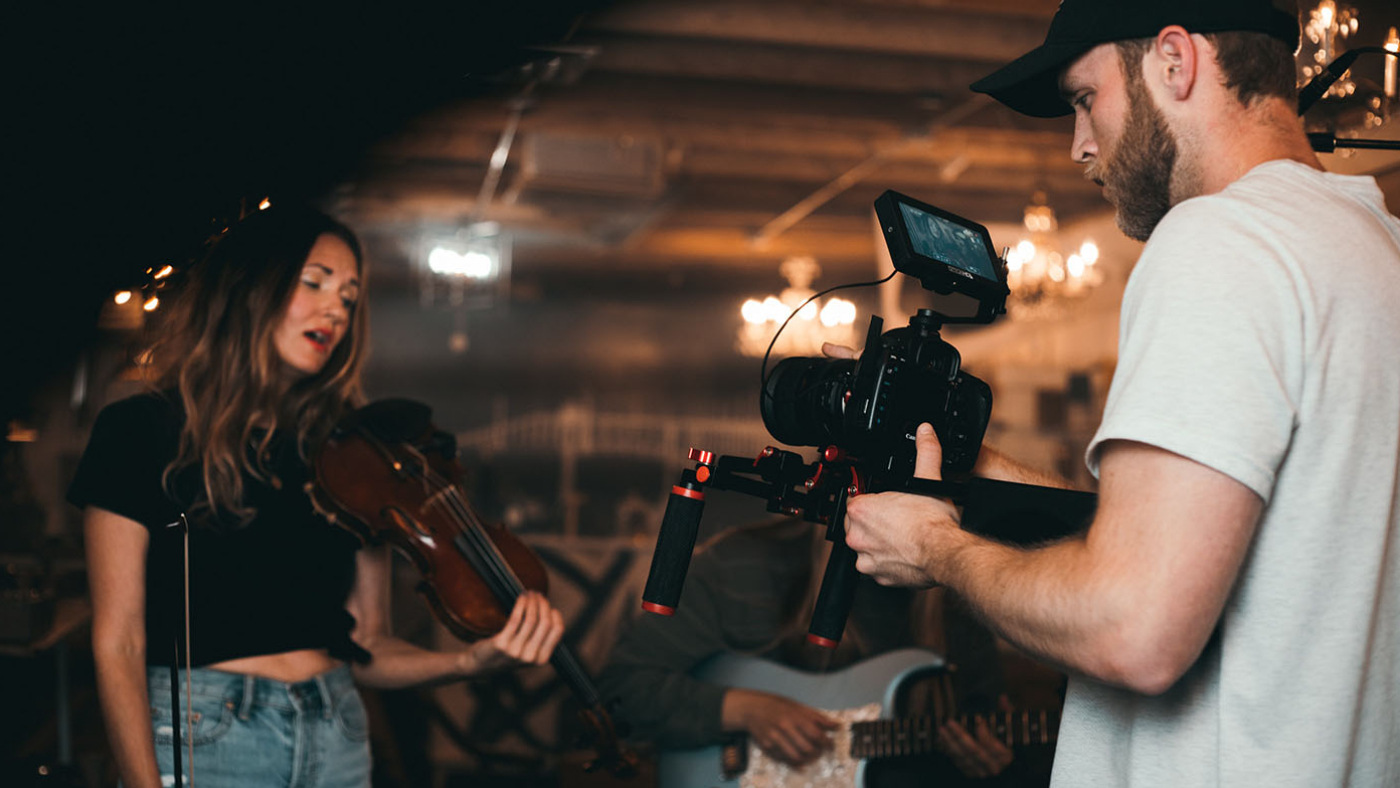

Producer
How To Be A Professional Music Video Producer
Published: March 5, 2024
Learn the essential skills and techniques to become a professional music video producer. Discover the secrets to success in the music industry. Unlock your potential as a top-tier producer.
(Many of the links in this article redirect to a specific reviewed product. Your purchase of these products through affiliate links helps to generate commission for AudioLover.com, at no extra cost. Learn more)
Table of Contents
- Introduction
- Understanding the Role of a Music Video Producer
- Building a Strong Network in the Music Industry
- Developing Creative and Technical Skills
- Pre-Production Planning and Organization
- On-Set Management and Leadership
- Post-Production and Editing Techniques
- Marketing and Promoting Your Work
- Conclusion
Introduction
The role of a music video producer is multifaceted and dynamic, requiring a unique blend of creative vision, technical expertise, and strong leadership skills. As a music video producer, you have the exciting opportunity to bring artistic concepts to life, collaborate with talented individuals, and contribute to the visual storytelling of music. This article will delve into the essential aspects of becoming a professional music video producer, providing valuable insights and practical guidance to help you thrive in this exhilarating field.
Whether you are an aspiring producer seeking to enter the music industry or a seasoned professional looking to expand your knowledge, understanding the intricacies of music video production is crucial for success. From building a robust network within the music industry to mastering pre-production planning, on-set management, post-production techniques, and effective marketing strategies, this comprehensive guide will equip you with the tools and knowledge necessary to excel in the competitive world of music video production.
By exploring the creative and technical skills essential for producing compelling music videos, as well as the intricacies of project management and promotion, you will gain a holistic understanding of the producer's role. Moreover, this article will provide valuable insights into the evolving landscape of music video production, including the impact of technological advancements and digital platforms on the industry. As you embark on this journey to become a professional music video producer, embracing innovation and adaptability will be key to staying ahead in this dynamic field.
Whether you are passionate about visual storytelling, music, or the intersection of both, the role of a music video producer offers an exciting avenue to express your creativity and make a meaningful impact in the entertainment industry. Throughout this article, you will discover the essential steps and strategies to elevate your skills, expand your network, and establish yourself as a proficient and sought-after music video producer. Let's embark on this enriching journey to unlock the potential of your creative vision and pave the way for a successful career in music video production.
Understanding the Role of a Music Video Producer
As a music video producer, your role is pivotal in bringing the artistic vision of a music video to life. You serve as the driving force behind the entire production process, overseeing every aspect from conceptualization to the final edit. Your responsibilities encompass a wide array of tasks, including collaborating with artists and directors, managing budgets and timelines, and ensuring the seamless execution of the creative vision.
One of the fundamental aspects of your role is to act as a liaison between the creative team and the technical crew. You are tasked with translating the artistic vision of the music video into actionable plans, ensuring that the director's concepts are effectively communicated and executed. This requires a keen understanding of visual storytelling, cinematography, and the technical aspects of video production.
Additionally, as a music video producer, you play a pivotal role in assembling the right team for each project. This involves identifying and hiring talented individuals such as cinematographers, editors, and production designers who can contribute their expertise to the overall vision. Building a strong network of industry professionals is crucial in ensuring access to a pool of skilled and reliable collaborators.
Moreover, your role extends to the logistical and administrative aspects of production, including budgeting, scheduling, and securing necessary permits and locations. You are responsible for managing the financial resources allocated to the project, ensuring that the production stays within budget while maintaining the desired level of quality.
Furthermore, effective communication and leadership are essential traits for a music video producer. You must be able to articulate the creative vision to the entire team, inspire and motivate them, and resolve any challenges that may arise during the production process. Your ability to foster a collaborative and productive working environment is instrumental in achieving the desired outcome for the music video.
In essence, the role of a music video producer is multifaceted, demanding a blend of creativity, technical proficiency, and strong organizational and leadership skills. By understanding the intricacies of this role, you can effectively navigate the complexities of music video production, ensuring that each project is executed with precision and artistry.
Building a Strong Network in the Music Industry
Building a robust network within the music industry is a crucial step for aspiring music video producers. Networking provides invaluable opportunities to connect with talented individuals, including artists, directors, cinematographers, editors, and other industry professionals. By fostering meaningful relationships and collaborations, you can expand your creative horizons, gain access to diverse talents, and enhance the quality of your productions.
To begin building your network, immerse yourself in the music and entertainment community. Attend industry events, film festivals, and music showcases where you can meet like-minded individuals and establish connections. Engaging in conversations with fellow creatives and industry insiders can open doors to potential collaborations and projects.
Utilize social media platforms to connect with artists, directors, and professionals in the music and film industry. Platforms such as LinkedIn, Instagram, and Twitter offer opportunities to engage with industry professionals, showcase your work, and stay updated on the latest trends and developments. Building a strong online presence can significantly expand your reach and visibility within the industry.
Collaborating on independent projects or music videos for emerging artists can also be a powerful way to expand your network. By working with up-and-coming talent, you can forge lasting relationships and demonstrate your creative and technical capabilities. These connections may lead to future opportunities and referrals, ultimately strengthening your position within the industry.
Furthermore, consider joining industry organizations, film associations, or attending workshops and seminars related to music video production. These platforms provide valuable networking opportunities, allowing you to connect with seasoned professionals, gain insights into industry trends, and build a reputation within the community.
Mentorship and guidance from established professionals can also be instrumental in expanding your network. Seeking advice from experienced producers and industry veterans can provide invaluable insights and open doors to new opportunities. Additionally, offering your assistance on larger productions or established artists' music videos can expose you to influential figures in the industry, further solidifying your network.
Ultimately, building a strong network in the music industry requires genuine engagement, proactive outreach, and a commitment to nurturing professional relationships. By cultivating a diverse and expansive network, you can position yourself for success, access new creative opportunities, and establish a prominent presence within the vibrant landscape of music video production.
Developing Creative and Technical Skills
Developing a comprehensive set of creative and technical skills is essential for aspiring music video producers to thrive in the competitive landscape of visual storytelling. Creativity forms the cornerstone of a producer's craft, as it fuels the ability to conceptualize compelling visual narratives that resonate with audiences. At the same time, technical proficiency is equally crucial, enabling producers to effectively translate creative visions into tangible, high-quality productions. Let's explore the key areas essential for honing creative and technical skills as a music video producer.
Embracing Visual Storytelling
Mastering the art of visual storytelling is paramount for music video producers. This involves understanding the nuances of cinematography, framing, and composition to evoke specific emotions and convey narratives visually. Developing a keen eye for detail and an understanding of visual language empowers producers to craft captivating and immersive storytelling experiences through their work.
Technical Expertise in Video Production
Acquiring proficiency in the technical aspects of video production is indispensable for music video producers. This includes a deep understanding of camera operations, lighting techniques, and sound design, as well as familiarity with editing software and post-production processes. Technical expertise enables producers to effectively collaborate with cinematographers, editors, and other technical professionals, ensuring seamless execution of the creative vision.
Harnessing Creative Collaboration
Collaboration lies at the heart of music video production, and developing strong collaborative skills is vital for producers. This involves fostering open communication, embracing diverse perspectives, and effectively integrating the contributions of the creative team to elevate the overall production. By nurturing an environment that encourages creative collaboration, producers can harness the collective talents of their team to bring innovative and impactful visions to life.
Staying Abreast of Industry Trends
Remaining current with industry trends and technological advancements is essential for producers to continually refine their creative and technical skills. This includes staying updated on emerging visual styles, advancements in production equipment, and evolving post-production techniques. By embracing innovation and staying abreast of industry developments, producers can infuse their work with fresh and compelling creative approaches.
Cultivating Adaptability and Innovation
Adaptability and innovation are indispensable traits for music video producers. The ability to adapt to diverse creative challenges and innovate in response to evolving industry demands is key to sustaining a successful career. Embracing new technologies, experimenting with unconventional storytelling techniques, and pushing creative boundaries are essential for producers to carve a distinct and impactful presence in the industry.
By actively developing their creative and technical skills across these essential areas, aspiring music video producers can position themselves to create visually stunning, emotionally resonant, and technically proficient productions. This commitment to continuous skill development forms the bedrock of a producer's ability to bring compelling artistic visions to life through the captivating medium of music videos.
Pre-Production Planning and Organization
Pre-production serves as the foundation for a successful music video production, encompassing a comprehensive array of tasks that are crucial for laying the groundwork of the project. This phase is characterized by meticulous planning, strategic organization, and detailed preparation, all of which are essential for ensuring a seamless and efficient production process. Let's delve into the key elements of pre-production planning and organization that are fundamental for music video producers.
Concept Development and Scripting
The pre-production phase commences with the development of the creative concept and scripting of the music video. This involves collaborating closely with the artist and director to understand their vision, thematic elements, and desired visual narrative. As a producer, your role in this stage includes facilitating brainstorming sessions, refining creative concepts, and overseeing the development of a cohesive script that aligns with the artist's vision and the song's thematic essence.
Budgeting and Resource Allocation
Effective pre-production planning entails meticulous budgeting and resource allocation to ensure that the project remains financially viable and meets the desired production standards. This involves assessing the creative requirements, identifying necessary equipment, securing filming locations, and allocating resources for talent, crew, and post-production processes. By carefully managing the budget and allocating resources judiciously, producers can optimize the production's efficiency and quality while adhering to financial constraints.
Crew and Talent Acquisition
Securing a skilled and cohesive team is pivotal during the pre-production phase. This includes identifying and hiring key personnel such as cinematographers, production designers, stylists, and other essential crew members. Additionally, casting the right talent, including actors, dancers, and extras, is integral to bringing the creative vision to life. Producers play a central role in assembling a proficient and harmonious team, ensuring that each member is aligned with the project's creative objectives and possesses the requisite expertise.
Location Scouting and Permits
Thorough location scouting is imperative for identifying suitable filming locations that align with the music video's aesthetic and thematic requirements. Producers are responsible for coordinating location scouts, obtaining necessary permits, and addressing logistical considerations such as access, permissions, and potential challenges associated with each location. Effective organization in this aspect ensures that the production progresses seamlessly, minimizing potential disruptions during filming.
Production Schedule and Logistics
Developing a comprehensive production schedule and logistical plan is essential for orchestrating a well-organized and efficient production. This involves creating a detailed shooting schedule, coordinating transportation logistics, and establishing contingency plans to mitigate unforeseen challenges. Producers are tasked with overseeing the development of a meticulously structured timeline that optimizes the utilization of time and resources, ensuring that the production stays on track and within the designated timeframe.
Collaborative Communication and Coordination
Effective communication and coordination are fundamental aspects of pre-production planning. Producers serve as the linchpin for fostering clear, open communication among the creative team, crew members, and talent. This encompasses disseminating essential project details, facilitating production meetings, and ensuring that all stakeholders are aligned with the project's goals and timelines. By fostering a collaborative and communicative environment, producers can streamline the pre-production process, fostering a cohesive and harmonious production team.
In essence, pre-production planning and organization form the bedrock of a successful music video production, laying the groundwork for a seamless and efficient execution of the creative vision. By meticulously attending to concept development, budgeting, resource allocation, crew acquisition, location scouting, scheduling, and communication, producers can establish a strong foundation that sets the stage for a visually compelling and artistically resonant music video.
On-Set Management and Leadership
On-set management and leadership are pivotal aspects of a music video producer's role, encompassing the orchestration of the production process, effective team management, and the seamless execution of the creative vision. As the linchpin of the production team, the producer's adeptness in on-set management and leadership plays a defining role in bringing the envisioned narrative to life.
Ensuring Adherence to Creative Vision
During the filming of a music video, the producer assumes the crucial responsibility of ensuring that the creative vision remains at the forefront of every decision and action. This involves maintaining a keen oversight of the production process, monitoring the alignment of each element with the established vision, and making real-time adjustments to uphold the artistic integrity of the project. By cultivating a deep understanding of the director's vision and the artist's creative objectives, the producer can guide the team in realizing the intended visual narrative with precision and authenticity.
Facilitating Effective Communication and Collaboration
Effective on-set management hinges on fostering clear communication and collaborative synergy among the production team. The producer serves as the nexus of communication, facilitating seamless interactions between the director, cinematographer, crew members, and talent. By fostering an environment of open dialogue, the producer ensures that every individual's expertise is harmoniously integrated, enabling the collective realization of the creative vision. Clear and concise communication channels, coupled with a collaborative spirit, are instrumental in navigating the intricacies of on-set dynamics and maximizing the efficiency of the production process.
Decision-Making and Troubleshooting
On-set management demands astute decision-making and adept troubleshooting skills from the producer. Unforeseen challenges and logistical hurdles may arise during filming, requiring swift and informed decisions to maintain the production's momentum. Whether addressing technical issues, weather-related constraints, or unforeseen scheduling changes, the producer's ability to make decisive and strategic choices is pivotal in mitigating disruptions and preserving the project's trajectory. Additionally, adept troubleshooting capabilities empower the producer to navigate unexpected obstacles with agility, ensuring that the production remains on course and the creative vision remains uncompromised.
Nurturing a Collaborative and Supportive Environment
An essential facet of on-set leadership is the cultivation of a collaborative and supportive environment that empowers every team member to contribute their best work. The producer's leadership extends beyond logistical coordination, encompassing the fostering of a positive and inclusive atmosphere that nurtures creativity and encourages the expression of innovative ideas. By fostering a culture of mutual respect, open communication, and creative empowerment, the producer cultivates an environment where each individual feels valued and motivated to contribute their expertise to the collective vision.
Upholding Professional Standards and Ethical Practices
On-set management and leadership also entail upholding professional standards and ethical practices throughout the production process. The producer plays a pivotal role in ensuring that the production adheres to industry regulations, safety protocols, and ethical guidelines. By prioritizing the well-being and professional integrity of the team, talent, and collaborators, the producer fosters an environment of trust and respect, underpinning the ethical conduct that is integral to the success of the production.
In essence, on-set management and leadership demand a harmonious blend of astute decision-making, effective communication, collaborative spirit, and a steadfast commitment to upholding the creative vision and professional standards. By embodying these qualities, the music video producer assumes a central role in orchestrating a cohesive, efficient, and artistically resonant production, ensuring that the envisioned narrative is brought to life with precision, passion, and authenticity.
Post-Production and Editing Techniques
Post-production serves as the transformative phase where the raw footage captured during filming is meticulously crafted into a cohesive and visually captivating music video. As a music video producer, overseeing the post-production process and leveraging advanced editing techniques are pivotal in shaping the final narrative, enhancing visual aesthetics, and ensuring a seamless integration of audio and visual elements.
The editing phase commences with the meticulous review of the captured footage, selecting the most compelling takes, and crafting a cohesive visual sequence that aligns with the music and the established creative vision. This involves collaborating closely with the editor to curate a narrative flow that captures the essence of the song, evokes emotive resonance, and sustains audience engagement.
Incorporating advanced editing techniques such as color grading, visual effects, and seamless transitions is integral to elevating the visual aesthetics of the music video. Color grading plays a pivotal role in establishing the mood and ambiance of the video, enhancing visual coherence, and infusing the footage with a distinct tonal palette that complements the thematic essence of the song. Additionally, integrating visual effects and seamless transitions empowers producers to imbue the video with cinematic flair, immersive storytelling elements, and a visually captivating narrative arc.
Furthermore, the post-production phase encompasses the meticulous synchronization of the audio track with the visual sequences, ensuring that the music and visuals harmoniously converge to create a compelling and immersive viewer experience. This involves precise audio editing, synchronization of beats, and seamless integration of sound effects to accentuate the emotional cadence of the music video.
Collaborating with sound designers and music engineers to refine the audio elements, optimize sound quality, and ensure a harmonious fusion of music and visuals is fundamental in delivering a polished and artistically resonant music video. Additionally, incorporating motion graphics, text overlays, and visual enhancements can further enrich the narrative, amplify thematic elements, and captivate audiences with immersive visual storytelling.
Embracing innovative post-production techniques and leveraging advanced editing software empowers producers to sculpt a visually compelling and emotionally resonant music video that embodies the artistic essence of the song. By meticulously attending to the intricacies of post-production, producers can ensure that the final product reflects the intended creative vision, captivates audiences, and resonates as a powerful visual expression of the music.
Marketing and Promoting Your Work
Marketing and promoting your work as a music video producer is essential for gaining visibility, attracting new opportunities, and establishing a reputable presence within the industry. It involves strategic dissemination of your portfolio, leveraging digital platforms, and actively engaging with industry professionals and potential collaborators.
One of the fundamental strategies for marketing your work is to curate a compelling portfolio that showcases your diverse range of music video productions. This includes creating a professional website or portfolio platform where you can exhibit your projects, highlight your creative approach, and provide insights into your unique visual style. Compiling a showreel that encapsulates your most impactful and visually striking works can serve as a powerful tool for captivating potential clients, artists, and industry stakeholders.
Leveraging social media platforms such as Instagram, YouTube, and Vimeo is instrumental in expanding your reach and engaging with a global audience. Sharing behind-the-scenes insights, production anecdotes, and visually captivating snippets from your music videos can pique the interest of viewers and potential collaborators. Engaging with artists, directors, and fellow industry professionals on social media fosters meaningful connections and opens doors to collaborative opportunities.
Networking within the music and entertainment industry is a potent avenue for promoting your work and forging valuable partnerships. Attending industry events, film festivals, and music showcases provides opportunities to showcase your portfolio, engage in meaningful conversations, and establish connections with artists, directors, and industry insiders. Building a robust network of industry professionals can lead to collaborative projects, referrals, and heightened visibility within the industry.
Collaborating with emerging and established artists on music videos not only expands your portfolio but also serves as a potent form of promotion. Producing visually stunning and emotionally resonant music videos for diverse artists can garner attention, accolades, and industry recognition. The impact of these collaborations extends beyond the individual projects, contributing to your overall brand and reputation as a versatile and proficient music video producer.
Additionally, actively seeking out industry publications, blogs, and online platforms to feature your work can significantly enhance your visibility. Securing interviews, guest features, or editorial spotlights can amplify your reach and position you as a noteworthy figure within the music video production landscape. Harnessing the power of press coverage and media exposure can elevate your profile and attract diverse opportunities for collaboration and project engagements.
In essence, marketing and promoting your work as a music video producer involves a multifaceted approach that encompasses digital presence, industry networking, collaborative engagements, and media outreach. By strategically curating your portfolio, leveraging social media, actively engaging with industry professionals, and seeking media exposure, you can elevate your visibility, attract compelling opportunities, and establish a prominent and influential presence within the dynamic realm of music video production.
Conclusion
Becoming a professional music video producer entails a multifaceted journey that demands a harmonious blend of creative vision, technical expertise, and astute project management. Throughout this comprehensive guide, we have delved into the essential facets of the producer's role, from understanding the intricacies of music video production to honing creative and technical skills, orchestrating pre-production planning, on-set management, post-production finesse, and strategic promotion of one's work.
Aspiring music video producers are encouraged to embrace the dynamic nature of the industry, cultivating adaptability, innovation, and a proactive approach to skill development. By immersing oneself in the vibrant music and entertainment community, fostering meaningful connections, and actively seeking collaborative opportunities, producers can expand their network, gain exposure, and position themselves for a successful and fulfilling career in visual storytelling.
The role of a music video producer is not only about executing projects but also about championing creative expression, fostering collaborative synergy, and contributing to the visual narrative of music. By embracing the art of visual storytelling, harnessing advanced technical skills, and nurturing a supportive and inclusive production environment, producers can create visually stunning, emotionally resonant, and artistically impactful music videos that resonate with audiences on a profound level.
Furthermore, the journey of a music video producer extends beyond the individual projects, encompassing a commitment to continuous growth, industry engagement, and the pursuit of innovative storytelling. By leveraging digital platforms, networking within the industry, and actively promoting one's work, producers can amplify their visibility, attract diverse opportunities, and carve a distinct and influential presence within the dynamic landscape of music video production.
In conclusion, the path to becoming a professional music video producer is marked by creativity, resilience, and a steadfast dedication to the craft. By embracing the insights and strategies outlined in this guide, aspiring producers can embark on a transformative journey, enriching the visual storytelling of music and leaving an indelible mark on the vibrant and ever-evolving realm of music video production.




